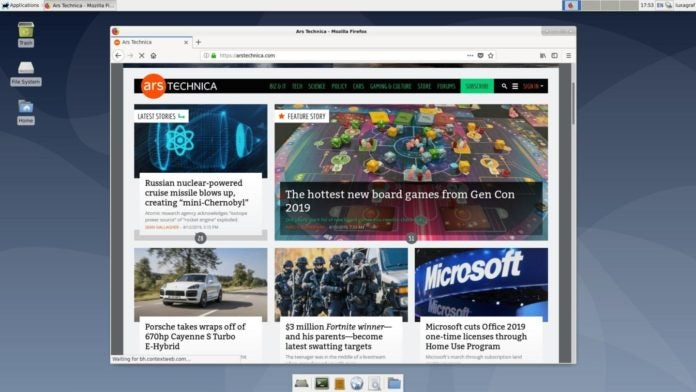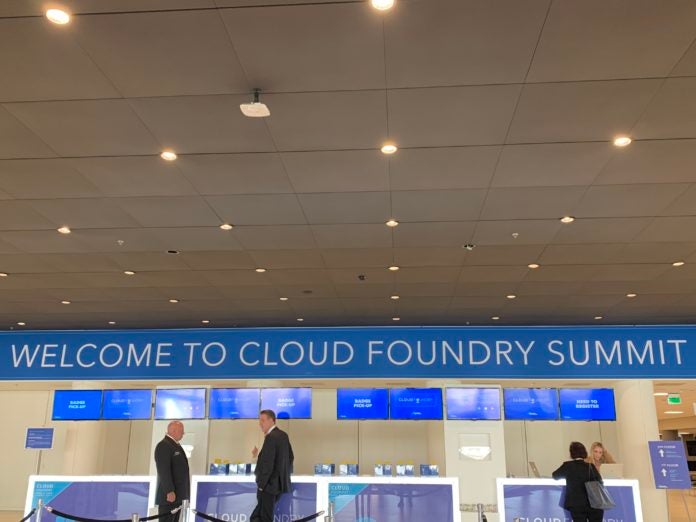Linux is built on the Linux Kernel Mailing List (LKML) and numerous other more specialized development mailing lists. But email and Internet Relay Chat (IRC) can only get you so far. Sometimes, to get things done, top Linux programmers really need to talk face-to-face with each other. That’s where the Kernel Maintainers Summit and Linux Plumbers comes in. The Kernel Maintainers Summit, Linux ceator Linus Torvalds told me, is an invitation-only gathering of the top Linux kernel developers. But, while you might think it’s about planning on the Linux kernel’s future, that’s not the case. “The maintainer summit is really different because it doesn’t even talk about technical issues.” Instead, “It’s all about the process of creating and maintaining the Linux kernel.” (Source: ZDNet, SJVN)
IBM Buries The Hatchet Between Red Hat And Cloud Foundry
IBM has buried the hatchet between Red Hat and Cloud Foundry by bringing its Cloud Foundry Enterprise Environment to Red Hat’s OpenShift container platform. Tech Crunch reports that “this work is still officially still a technology experiment, but our understanding is that IBM plans to turn this into a fully supported project that will give Cloud Foundry users the option to deploy their application right to OpenShift, while OpenShift customers will be able to offer their developers the Cloud Foundry experience.”
Debian 10 Review By Ars Technica
Scott Gilbertson at Ars Technica reviews the latest release of Debian. He wrote: “Debian is always a tough distro to get excited about because, while there’s a ton of new things in this release, most of these updates long ago arrived in nearly every other distro. Debian releases look like the distro is playing catch-up with the rest of the Linux world. And in some ways, that’s exactly what’s happening.
This time around, though, it feels like there’s more to the new Debian release than that. Most of the major updates in Debian 10 involve security in one way or another, making Buster feel a bit like “Debian, hardened.”
Cloud Foundry Investment And Deployments Increasing
Broad deployment of Cloud Foundry has nearly doubled in just the last two years, according to the latest report released by Cloud Foundry Foundation, home to open source projects helping build the future of cloud applications. The study was released at the Foundation’s European Cloud Foundry Summit in The Hague. It revealed that 45 percent of user respondents describe their Cloud Foundry use as “broad” compared to 30 percent in 2018 and 24 percent in 2017. Furthermore, 39 percent of developers are deploying applications in less than one day. Nearly one in five respondents started using the platform in just the last 12 months, indicating a healthy and growing community of developers. (Source: e3zine)
Ballerina Reinvents Cloud Native Middleware as a Programming Language
Ballerina has announced a new open source project created and sponsored by WSO2, which radically simplifies how developers will build and deploy cloud native distributed applications and services. Ballerina 1.0, which is available under the Apache License, is being announced in conjunction with ApacheCon North America 2019. Ballerina, an ApacheCon Gold Sponsor, will offer technical sessions and demos of the new Ballerina release at the event. WSO2 CTO Paul Fremantle will also hold a session on Tuesday, September 10 at 2:30 p.m., “Ballerina – Re-inventing Middleware in a Programming Language.” ApacheCon North America 2019 is being held September 9-12, 2019 at the Flamingo in Las Vegas, Nevada. (Source: Yahoo!)
The Eclipse Foundation Releases Jakarta EE 8 Specifications
The Eclipse Foundation today announced during the JakartaOne Livestream virtual conference the release of the Jakarta EE 8 Full Platform and Web Profile specifications and related Technology Compatibility Kits (TCKs). This release provides a new baseline for the evolution and innovation of enterprise Java technologies under an open, vendor-neutral, community-driven process. As a result, Java vendors, developers, and customers alike now have a foundation for migrating mission-critical Java EE applications and workloads to a standard enterprise Java stack for a cloud native world. (Source: Financial Buzz)
Open Source Security Platform Snyk Raises $70m
Israel open source security platform developer Snyk has raised $70 million led by Accel and with the participation of previous investors GV and Boldstart Ventures. In its previous financing round last September, the company raised $22 million at a company valuation of $100 million, a source told “Techcrunch” at the time. (Source: Globes)
Kong Open Sources Kuma: The Universal Service Mesh
Kong has announced the release of a new open source project called Kuma. Based on the popular open source Envoy proxy, Kuma is a universal control plane that addresses limitations of first-generation service mesh technologies by enabling seamless management of any service on the network. (Kong Press Release)
ONF Open Sources Stratum
The Open Networking Foundation (ONF) today open sourced the Stratum project and said it will be the foundation for ONF’s next-generation SDN stack for operators. Stratum is a silicon-independent switch operating system for software-defined networks that runs on a variety of switching silicon and various whitebox switch platforms. It’s now available under the Apache 2.0 open source license. (SDX Central)
Manjaro Linux Goes Commercial
One of the most popular Linux distribution, Manjaro Linux, is heading toward its commercial path with the creation of a company around the project to keep it sustainable.
The project has founded a company called Manjaro GmbH & Co. KG, to enable full-time employment of maintainers and exploration of future commercial opportunities.
Project’s idea behind the move is to:
- Enable developers to commit full time to Manjaro and its related projects;
- Interact with other developers in sprints and events around Linux;
- Protect the independence of Manjaro as a community-driven project, as well as protect its brand;
Provide faster security updates and a more efficient reaction to the needs of users; - Provide the means to act as a company on a professional level.
That said, Manjaro will remain a community project; nothing is going to change with the project. Manjaro is also working with the Linux Foundation’s CommunityBridge and OpenCollective projects for sponsorships.
Commercialization of Linux and open source is often frowned about by some users of open source, but the fact is that Linux or any other open-source project need commercialization to succeed. Trade and commerce is the backbone of modern human civilization, without it we would become hunters and gatherers. It’s a wise decision by the project to take this step to ensure sustainability.






